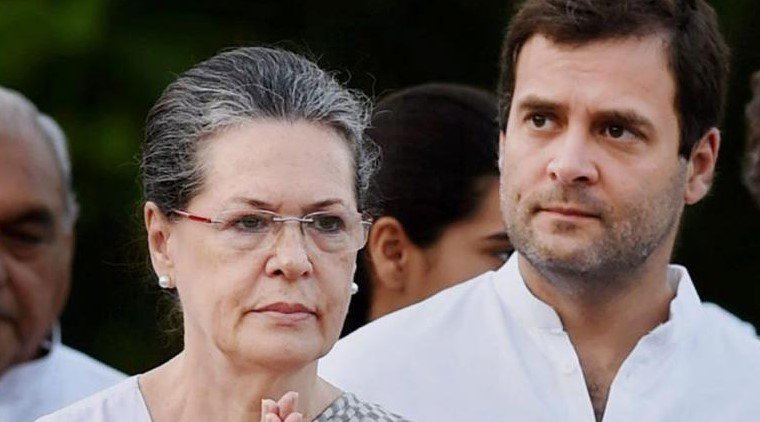The Delhi court kicked off hearings on the Enforcement Directorate’s (ED) complaint under the Prevention of Money Laundering Act (PMLA) involving Sonia Gandhi, Rahul Gandhi, and others linked to the National Herald case. The case revolves around allegations of money laundering tied to the takeover of Associated Journals Limited (AJL), a company whose properties are valued over ₹2,000 crore.
The court, led by Additional Sessions Judge Vishal Gogne, pressed the ED for detailed explanations about the nature of the offenses. It raised pointed questions about how the alleged financial misconduct unfolded, particularly concerning the shareholding and capital changes within AJL and the role of Young Indian — the company majority-owned by the Gandhi family.
Court Probes ED’s Claims: What Exactly Is the Alleged Crime?
The hearing revealed a pressing need for clarity. The judge openly questioned the Enforcement Directorate’s legal and technical basis for the money laundering charges. “Is there a forensic auditor here, or someone who can fill those shoes?” the judge asked, signaling that technical financial expertise is crucial.
At the heart of the matter is the alleged “fraudulent takeover” of AJL by Young Indian. ED claims that shares were transferred under a criminal conspiracy, which allowed Young Indian to acquire assets worth more than ₹2,000 crore illegally. These assets include shares, real estate, and rental income generated by AJL.
The judge highlighted that company share issuance is a complex process, with numerous legal formalities. “Companies issue different shares and follow many processes,” he noted. For the ED to show criminal intent, they must clearly explain how the share transfers were improper or illegal, beyond simply stating that money laundering occurred.

This is no small matter — courts have to interpret corporate law intricacies carefully when dealing with alleged white-collar crimes.
The Role of Young Indian and Share Transfer Dispute
Young Indian, the company controlled by Sonia Gandhi and Rahul Gandhi, is at the center of the controversy. ED alleges that it gained control of AJL’s assets in a way that constitutes “proceeds of crime.” Essentially, the accusation is that Young Indian took over these assets by manipulating shareholding patterns.
The legal challenge here revolves around the mechanism of share issuance and ownership. The Prevention of Money Laundering Act requires a clear connection between an illegal act and the subsequent handling of its proceeds. But the court is pushing for more than just a straightforward accusation.
To prove money laundering, the prosecution must show that Young Indian’s acquisition was illegal at its core — that it was a product of a crime, not just a corporate transaction.
Private Complaint by Subramanian Swamy Fuels the Case
Interestingly, the ED’s entire probe started because of a private complaint by former Union minister Subramanian Swamy. Swamy has been a vocal critic of the Gandhi family and has previously filed several cases against them.
The case has lingered for years, often catching public and media attention due to the high-profile names involved and the staggering sums of money at stake. While the case seems like a typical political power struggle on the surface, the court’s questions hint that legal facts will play a big role in how this unfolds.
How the Court Views the Corporate Angle: A Technical Puzzle
Judge Gogne’s insistence on expert financial testimony underlines a broader issue in white-collar crime cases: courts must understand complex business operations to deliver justice. Without expert evidence, it’s tough to prove that something like a share transfer — which might appear normal on paper — is actually criminal.
-
Share issuance involves various types, like equity shares, preference shares, and rights issues.
-
Companies often adjust paid-up capital for legitimate reasons, including business growth or restructuring.
-
So, the prosecution needs to clearly distinguish legal corporate actions from fraudulent ones.
What’s Next? The Court’s Scrutiny Signals a Long Road
This is just the opening act in what promises to be a drawn-out legal process. The court’s demand for forensic experts and detailed explanations shows it won’t accept half-baked arguments.
Also, the case is about much more than just legal technicalities. It touches on politics, public perception, and the accountability of powerful figures. Will the ED present compelling evidence, or will the Gandhis’ legal team dismantle the claims point by point?
The upcoming hearings will likely bring more details to light, and the political heat will only intensify.
The Delhi court’s tough stance shows it’s serious about separating genuine legal issues from political noise. In cases like this, where corporate law meets allegations of crime, justice depends on facts, clear evidence, and expert testimony.
